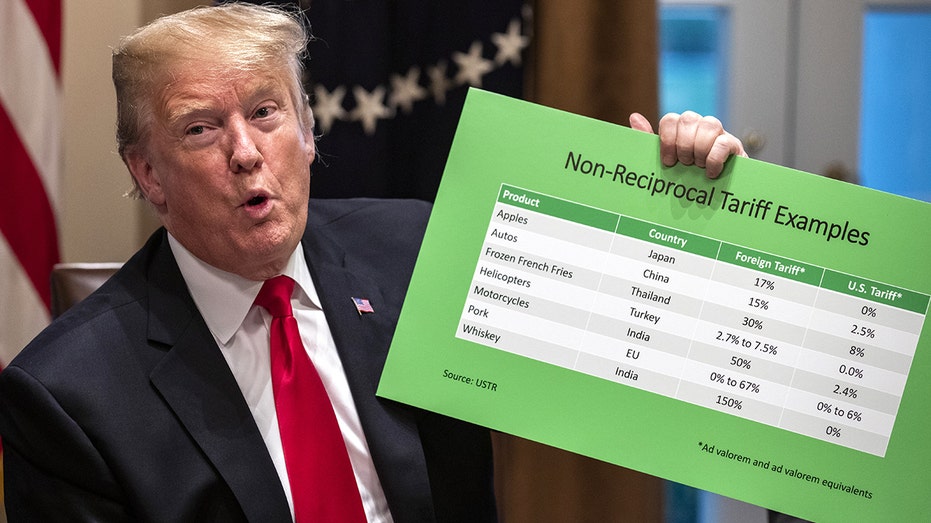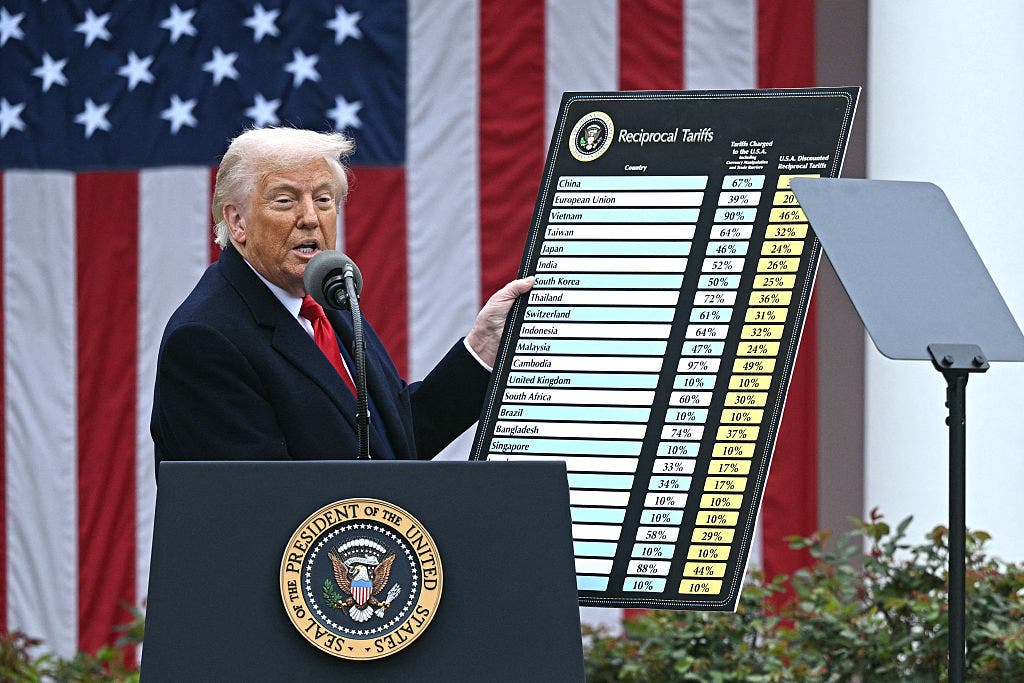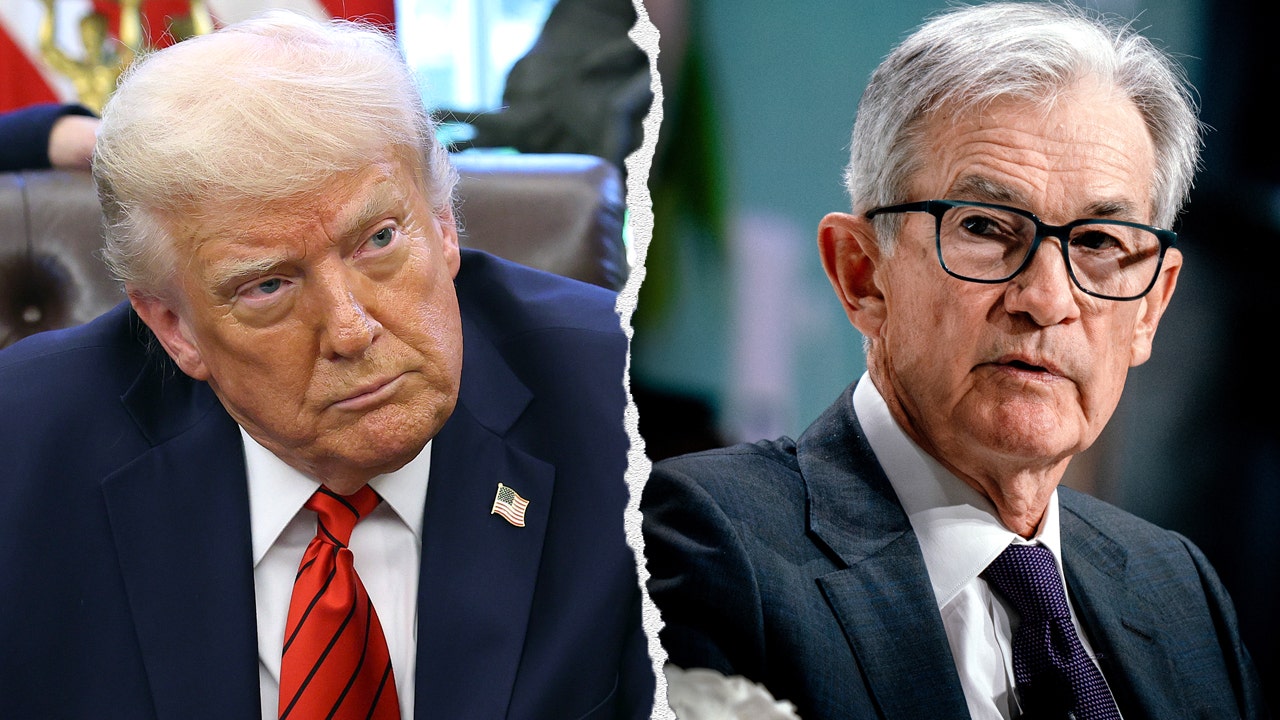In a win for the Trump administration, the U.S. Court of International Trade rejected a request from a group of small businesses to immediately halt President Donald Trump’s sweeping tariffs from taking force.
Judges on the three-member panel for the U.S. Court of International Trade (CIT) ruled that the plaintiffs failed to show a likelihood that they would suffer “immediate and irreparable harm” as a result of the tariffs – the standard courts require to grant a temporary restraining order.
The decision from the U.S. trade court leaves in place Trump’s sweeping tariff plan while plaintiffs’ broader request for injunctive relief continues to play out in court.
SUPREME COURT RULES ON STATUS OF TENS OF THOUSANDS OF FIRED PROBATIONARY EMPLOYEES
Judges on Tuesday also ordered both plaintiffs and government lawyers to submit to the court new filings by early May, and set a planned hearing date to consider the merits of the case.
The lawsuit was brought earlier this month by the Texas-based Liberty Justice Center, on behalf of four small businesses in New York, Pennsylvania, Utah and Vermont.
Each of the businesses relies heavily on imported goods for their day-to-day operations, plaintiffs argued, adding that the tariff uncertainty created by Trump in his “Liberation Day” tax on imported goods – and in the days and weeks since – would be “devastating” to the operations and suppliers of the small businesses.
Plaintiffs asked the federal trade court to grant a temporary restraining order that would block the tariffs from taking force, arguing that Trump inappropriately used the International Emergency Economic Powers Act (IEEPA) as the basis for implementing the sweeping new taxes on imported goods.
FEDERAL JUDGES IN NEW YORK AND TEXAS BLOCK TRUMP DEPORTATIONS AFTER SCOTUS RULING

“The power claimed by the President here is extreme: he claims the power to unilaterally impose infinite tariffs of his choosing on any country he chooses – even countries with which we run a trade surplus,” they argued in their court filing.
“Any grant of such authority by Congress to the President should qualify as a major question subject to the strictest judicial scrutiny – which this claim of authority under IEEPA cannot survive,” they added.
The brief decision from the federal trade court noted only that plaintiffs failed to prove that they had suffered immediate and irreparable harm needed to grant a request for the temporary restraining order.

The CIT ruling is a near-term victory for Trump, whose administration has sought to impose harsh tariffs on China, Mexico, Canada and others.
The ruling comes amid a flurry of lawsuits that have sought to block or pause Trump’s near-term actions, including lawsuits aimed at limiting DOGE, or the Elon Musk-led government “efficiency” agency, blocking Trump’s ban on birthright citizenship, and challenging the actions taken to deport certain migrants from the U.S. to El Salvador.
White House officials have denounced lower court rulings and the so-called “activist” judges who have ruled in ways unfavorable to the administration– which press secretary Karoline Leavitt last month called an “unauthorized infringement” on the president’s authority.
The court ordered both parties to appear in court on May 13, when judges will hear arguments from the government and from plaintiffs as they make their case for a preliminary injunction.
Read the full article here











